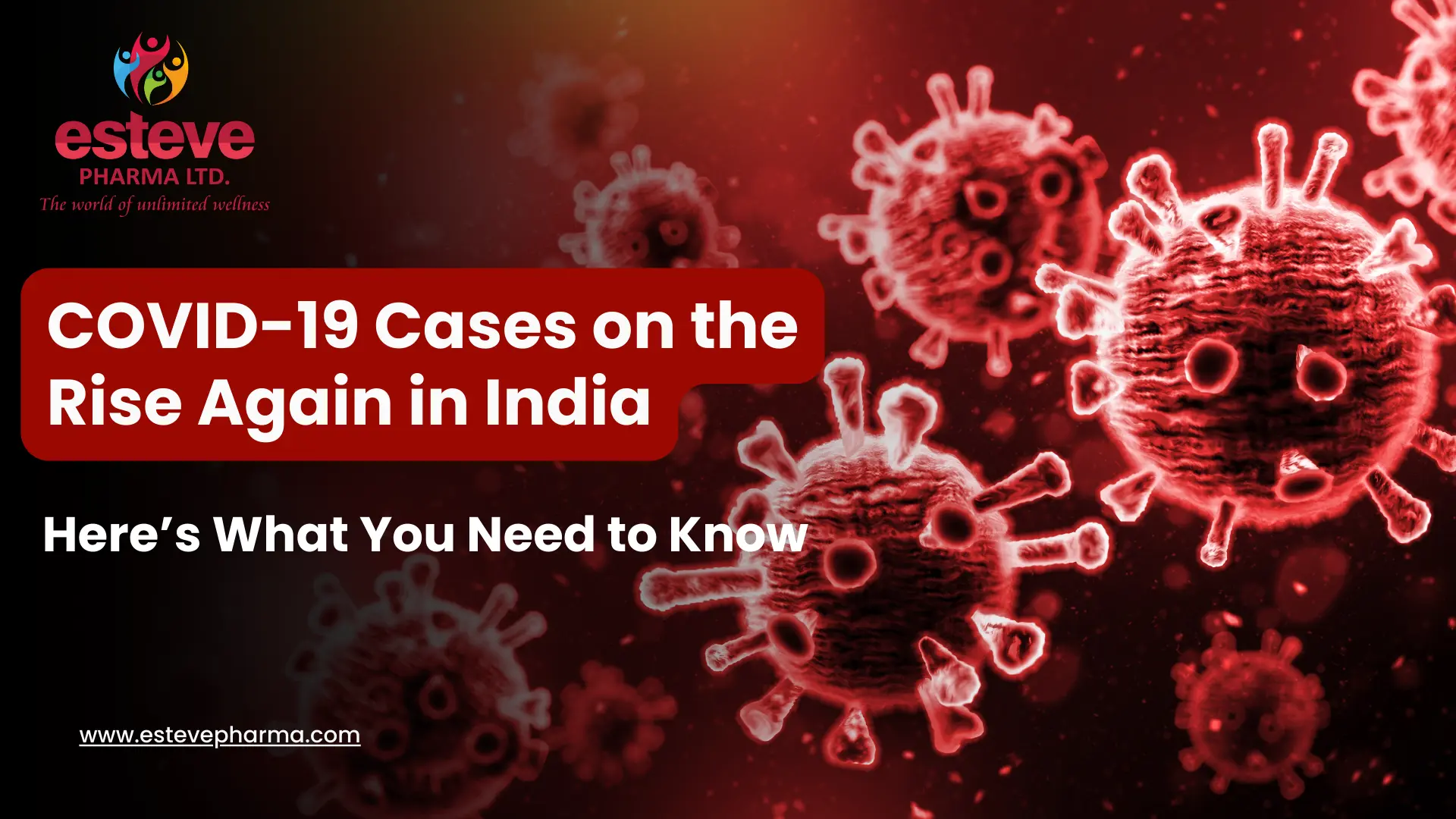Subtotal ₹0.00
COVID-19 Cases on the Rise Again in India: Here’s What You Need to Know
COVID-19 is making headlines again. As of May 26, active cases in India have crossed the 1,000-mark, with 1,009 people currently infected across several states.
While the numbers are still relatively low compared to past waves, this sudden uptick is a gentle reminder that the virus hasn’t gone anywhere. Let’s break down what’s happening, which states are affected the most, and—most importantly—what you can do to protect yourself and your loved ones.
State-wise COVID-19 Active Case Tally (As of May 26)
According to the Ministry of Health and Family Welfare, here’s the official state-wise active case tally:
| State | Active Cases |
|---|---|
| Kerala | 430 |
| Maharashtra | 209 |
| Delhi | 104 |
| Gujarat | 83 |
| Tamil Nadu | 69 |
| Karnataka | 47 |
| Uttar Pradesh | 15 |
| West Bengal | 12 |
| Haryana | 9 |
| Andhra Pradesh | 4 |
| Total (India) | 1,009 |
Alongside these, the latest figures also show:
Total Infected (current wave): 752
Total Discharged: 305
Total Deaths: 7
Where Are the New Cases Coming From?
Here are a few recent highlights from the ground:
➤ Karnataka:
An 84-year-old man with serious comorbidities (heart issues, TB, bedridden for a year) passed away after testing positive. Officials are auditing to confirm the exact cause of death.
➤ Maharashtra (Thane):
A 21-year-old COVID-19 patient being treated at Kalwa Hospital sadly passed away.
➤ Bihar (Patna):
A 31-year-old man with no travel history tested positive. He’s recovering well with mild symptoms.
➤ West Bengal:
11 active cases reported, mostly from Kolkata and suburbs. A few are under observation in hospitals.
➤ Jharkhand (Ranchi):
A new case reported on May 25. The patient had recently returned from Mumbai. A 20-bed isolation ward is being set up, and a check-up drive is underway in the city.
Can You Get COVID Even After Being Vaccinated?
Yes, you can still get infected even after full vaccination. But there’s a catch—and a silver lining.
💡 Vaccination doesn’t make you invincible, but it greatly reduces your risk of severe illness, hospitalization, or death. So even if you do get infected, the chances of complications are much lower.
So, should you still get vaccinated (and boosted)?
Absolutely! Think of vaccines as a shield that might not stop every arrow but can stop the deadly ones.
How to Reduce Your Risk of COVID-19 Infection?
Here are expert-recommended tips to protect yourself and those around you:
1. Wear a Mask in Crowded or Enclosed Places
Use a N95 or KN95 mask in high-risk areas like hospitals, metros, airports, or crowded events.
Dr. Diksha recommends continuing mask use in places with poor ventilation.
📝 Pro Tip: Always cover both nose and mouth, avoid touching the front of the mask, and wash reusable masks daily.
2. Maintain Basic Hygiene
Wash hands frequently for at least 20 seconds.
Use hand sanitizers (with at least 60% alcohol) when soap and water aren’t available.
Avoid touching your face unnecessarily.
3. Avoid Close Contact if You’re Feeling Unwell
Even if it’s “just a cold,” keep your distance to avoid spreading any potential infections.
4. Get Vaccinated and Stay Up-to-Date with Boosters
The COVID-19 vaccine doesn’t prevent infection entirely but helps prevent serious illness.
If you’re eligible for a booster dose, don’t skip it.
5. Monitor High-Risk Groups
Elderly people and those with heart disease, diabetes, asthma, or other chronic conditions should be monitored closely for symptoms.
If symptoms appear, consult a doctor immediately.
The rise in COVID-19 cases is not a reason to panic—but it is a reminder to stay cautious. Most cases so far are mild, and the healthcare system is prepared, but prevention is still better than cure.
Let’s be responsible citizens—wear our masks when needed, follow basic hygiene, and encourage vaccination in our communities.
Together, we’ve faced worse. With awareness and timely action, we can manage this too.



